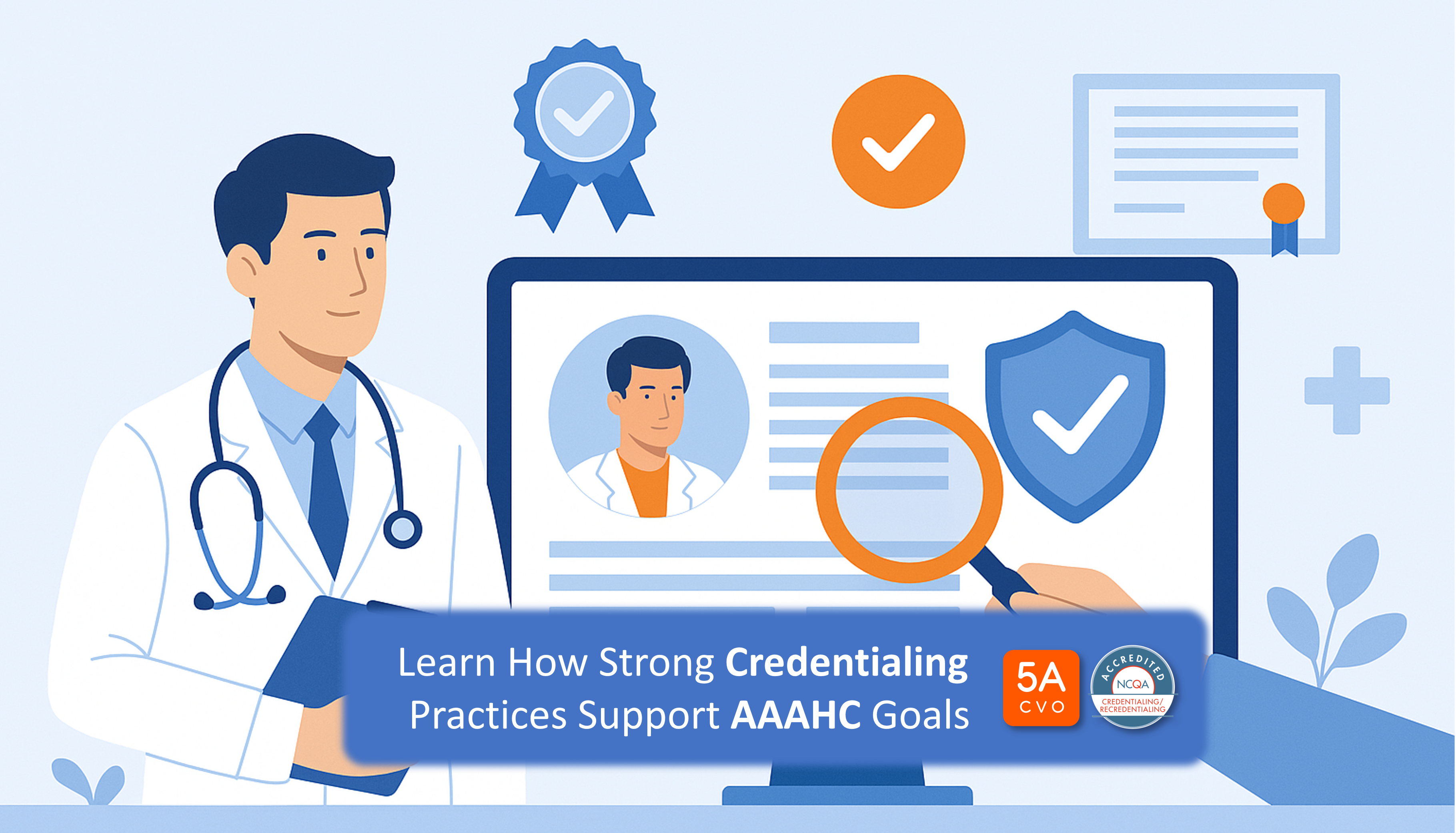In the complex healthcare landscape, provider enrollment is a crucial process that ensures providers are authorized to offer services and receive reimbursements from payers.
Delegated provider enrollment has emerged as an efficient alternative to the traditional enrollment process, providing numerous benefits for healthcare organizations. This article will delve into the frequently asked questions about delegated provider enrollment and provide answers to help healthcare administrators and providers navigate this critical process.
1. What is Delegated Provider Enrollment?
Delegated provider enrollment is a process where a healthcare organization, such as a hospital, medical group, or managed care organization, assumes the responsibility of enrolling its providers with payers. This centralized approach streamlines the enrollment process, ensuring consistency and efficiency.
Unlike traditional enrollment, where each provider handles their enrollment, the organization manages all aspects on behalf of its providers.
2. How Does Delegated Provider Enrollment Benefit Our Organization?
Delegated provider enrollment offers several advantages:
-
- Efficiency: Centralizing the enrollment process reduces redundancy and speeds up provider onboarding. This ultimately creates an opportunity for an increase in billing.
- Cost Savings: Organizations can reduce administrative costs and allocate resources more effectively by streamlining operations.
- Improved Compliance: Ensuring consistent and accurate provider information helps maintain compliance with payer requirements, reducing the risk of penalties.
- Enhanced Provider Focus: Providers can focus on patient care rather than administrative tasks, improving overall productivity and job satisfaction.
3. What is the Process for Setting Up Delegated Provider Enrollment with Payers?

Establishing delegated provider enrollment involves several key steps:
-
- Assess Readiness: Evaluate the organization’s capacity to manage the enrollment process, including resources, staff, and technology.
- Develop a Proposal: Create a detailed proposal outlining the benefits and processes of delegated enrollment to present to payers.
- Negotiate Agreements: Work with payers to negotiate and finalize delegated enrollment agreements, including roles, responsibilities, and compliance requirements.
- Implement Systems: Set up the necessary systems and processes to manage provider data, documentation, and reporting.
- Training and Education: Train staff on the delegated enrollment process and ensure they understand compliance requirements and reporting protocols.
4. Which Payers Accept Delegated Provider Enrollment?
Not all payers accept delegated provider enrollment, which varies by payer and region. Major commercial payers, Medicare and Medicaid, often have specific criteria and processes for delegated enrollment.
Firms such as Primoris often list the payers that they have achieved delegated provider enrollment agreements with. It is essential to research and confirm with each payer whether they allow delegated enrollment and understand their particular requirements.
5. What Responsibilities Do We Retain Under a Delegated Provider Enrollment Agreement?
Under a delegated provider enrollment agreement, the healthcare organization typically retains several responsibilities, including:
-
- Maintaining Accurate Records: Ensuring all provider information is up-to-date and accurate.
- Compliance: Adhering to payer requirements and regulations.
- Reporting: Providing regular updates and reports to payers as stipulated in the agreement.
- Audit Preparedness: Being prepared for periodic audits by payers to verify compliance and accuracy.
6. What Documentation and Data Do We Need to Provide for Delegated Enrollment?
The specific documentation and data required for delegated enrollment can vary by payer but generally include the following:
-
- Provider Licenses: Copies of current medical licenses for all providers.
- Board Certifications: Documentation of any board certifications.
- Malpractice Insurance: Proof of current malpractice insurance coverage.
- Education and Training: Records of medical education and training.
- Practice Information: Details about practice locations, tax identification numbers, and contact information.
- Professional History: Work history and any disciplinary actions or sanctions.
7. How Do We Ensure Accuracy and Compliance in Delegated Provider Enrollment?
Ensuring accuracy and compliance involves several strategies:
-
- Regular Audits: Conduct internal audits to verify the accuracy of provider information and compliance with payer requirements.
- Training: Continuously train staff on compliance protocols and updates to payer requirements.
- Technology: Utilize software solutions to manage provider data and automate compliance checks.
- Communication: Maintain open lines of communication with payers to stay informed about changes in requirements and best practices.
8. What Are Some Potential Risks and Challenges of Delegated Provider Enrollment?
While delegated provider enrollment offers many benefits, it also presents potential risks and challenges:
- Data Breaches: Handling copious amounts of sensitive data increases the risk of breaches, requiring robust security measures.
- Inaccuracies: Inaccurate provider information can lead to delays, denials, or non-compliance issues.
- Resource Allocation: Effective delegated enrollment requires adequate resources, including skilled staff and technology.
- Payer Relationships: Navigating relationships with multiple payers can be complex and time-consuming.
- Compliance Challenges: Staying informed and proactive about compliance requirements can be time-laborious and overwhelming.
Here are some practical solutions to help mitigate the risks and challenges of these issues.
Potential Risk: Data Breaches
Possible Solution: Implement robust data security measures
-
- Encryption: Ensure all sensitive data is encrypted in transit and at rest.
- Access Controls: Use strict access controls to limit who can view or edit provider information.
- Regular Audits: Conduct regular security audits to identify and address vulnerabilities.
- Training: Provide ongoing training for staff on best practices for data security and recognizing phishing attempts.
Potential Risk: Inaccuracies in Provider Information
Possible Solution: Establish rigorous data validation and verification processes
-
- Automated Systems: Use automated systems to cross-check provider information against primary sources.
- Regular Updates: Schedule regular updates and reviews of provider information to ensure accuracy.
- Quality Assurance: Implement a quality assurance process to review and validate information before submission.
- Feedback Loop: Create a feedback loop where providers can easily report and correct record inaccuracies.
Potential Risk: Resource Allocation
Possible Solution: Allocate sufficient resources and invest in technology
-
- Dedicated Team: Establish a dedicated team responsible for managing delegated enrollment.
- Technology Investment: Invest in technology that automates routine tasks and tracks the status of enrollments.
- Outsourcing: Consider outsourcing to a third-party service for additional support, particularly during peak times.
- Training: Provide specialized staff training to ensure they are proficient in managing the enrollment process.
Potential Risk: Navigating Payer Relationships
Possible Solution: Foster strong relationships and clear communication with payers
-
- Dedicated Liaison: Appoint a dedicated liaison to manage relationships and communications with payers.
- Regular Meetings: Schedule regular meetings with payer representatives to discuss requirements, updates, and issues.
- Clear Documentation: Maintain clear and comprehensive documentation of all communications and agreements with payers.
- Issue Resolution Protocols: Develop and implement protocols to quickly resolve disputes with payers.
Potential Risk: Compliance Challenges
Possible Solution: Stay informed and proactive about compliance requirements
-
- Compliance Management System: Implement a compliance management system to track and ensure adherence to payer requirements.
- Regular Training: Conduct regular compliance training sessions for staff to keep them updated on the latest regulations and best practices.
- Monitoring and Audits: Continuously monitor compliance status and conduct internal audits to identify and address potential issues.
- Consulting Experts: Engage compliance experts or legal counsel to provide guidance and support when needed.
By implementing these solutions, healthcare organizations can effectively mitigate the risks and challenges associated with delegated provider enrollment, ensuring a smoother, more efficient process that benefits the organization and its providers.
Furthermore, a healthcare organization should seek accreditation from a credible body, such as NCQA Credentialing Accreditation, which will help establish best practices and processes. This will offer providers better peace of mind should they choose to work with a healthcare organization offering delegated provider enrollment.
9. How Does Delegated Provider Enrollment Impact Our Billing and Reimbursement?
Delegated provider enrollment can positively impact billing and reimbursement by:
-
- Reducing Delays: Streamlined enrollment processes reduce delays in getting providers credentialed and able to bill for services.
- Improving Accuracy: Accurate provider information helps avoid claim denials and payment delays.
- Enhancing Revenue Cycle Management: Efficient enrollment supports smoother revenue cycles and more predictable cash flow.
10. What Are the Reporting and Audit Requirements for Delegated Provider Enrollment?

Reporting and audit requirements vary by payer but generally include:
-
- Regular Reports: Submission of regular reports detailing provider information, updates, and compliance status.
- Compliance Audits: Periodic audits by payers to verify the accuracy of provider information and adherence to compliance standards.
- Data Transparency: Maintaining transparent records and being prepared to provide detailed information upon request.
11. Can We Outsource Delegated Provider Enrollment to a Third-Party Service?
Yes, many organizations choose to outsource delegated provider enrollment to third-party services. Benefits of outsourcing include:
-
- Expertise: Third-party services often have specialized knowledge and experience in provider enrollment.
- Efficiency: Outsourcing can streamline the process and reduce the administrative burden on internal staff.
- Compliance: Professional services can help ensure compliance with payer requirements and reduce the risk of errors.
12. What Training and Resources Are Available for Managing Delegated Provider Enrollment?
Several training and resource options are available to help manage delegated provider enrollment:
-
- Online Courses: Various online courses and certification programs focus on provider enrollment and credentialing.
- Industry Conferences: Attending conferences and seminars provides opportunities to learn from industry experts and network with peers.
- Software Solutions: Utilizing specialized software can help manage provider data, automate processes, and ensure compliance.
- Consulting Services: Engaging consulting services can provide tailored guidance and support for implementing delegated enrollment processes.
13. How Do Changes in Provider Status (e.g., New Hires, Terminations) Affect Delegated Enrollment?
Changes in provider status require timely updates to ensure compliance and accuracy:
-
- New Hires: Promptly enrolling new providers and ensuring all necessary documentation is submitted to payers.
- Terminations: Updating payer records to remove terminated providers and avoid billing issues.
- Status Changes: Reporting any changes in provider information, such as address or specialty, to maintain accurate records.
14. What Are the Performance Metrics or KPIs for Delegated Provider Enrollment?

Key performance indicators (KPIs) for delegated provider enrollment include:
-
- Enrollment Timeframes: Measuring the time it takes to complete the enrollment process for each provider.
- Accuracy Rates: Tracking the accuracy of submitted provider information and the rate of errors or discrepancies.
- Compliance Rates: Monitoring adherence to payer requirements and the frequency of compliance issues.
- Satisfaction Scores: Evaluating provider and staff satisfaction with the enrollment process and identifying areas for improvement.
15. How Do We Transition from Traditional Provider Enrollment to Delegated Provider Enrollment?
Transitioning from traditional to delegated provider enrollment involves several steps:
-
- Assessment: Evaluate the current enrollment process and identify areas for improvement.
- Planning: Develop a detailed transition plan, including timelines, resources, and critical milestones.
- Training: Train staff on the new processes and ensure they understand their roles and responsibilities.
- Implementation: Gradually implement the new process, starting with a pilot program if necessary.
- Evaluation: Continuously monitor and evaluate the new process, adjusting as needed to ensure success.
Conclusion to 15 Top FAQs for Understanding Delegated Provider Enrollment
Delegated provider enrollment offers numerous benefits for healthcare organizations, from improved efficiency and cost savings to enhanced compliance and provider satisfaction.
By understanding the critical aspects of delegated enrollment and addressing frequent questions and challenges, healthcare administrators and providers can successfully implement this approach and reap its many advantages.
More information about Primoris Credentialing Network
Primoris Credentialing Network is an NCQA Credentialing Accredited company specializing in credentialing and provider enrollment. It offers 54+ health plan and network provider enrollment options. Primoris is a family member of Fifth Avenue Healthcare Services. Sister companies include 5ACVO (credentialing and primary source verification specialists) and Fifth Avenue Agency (MPLI and medical malpractice specialists).
For more information on Primoris Credentialing Network, please visit PrimorisCredentialingNetwork.com or Contact Us.














